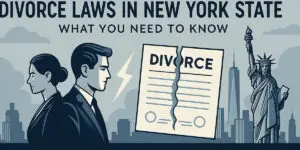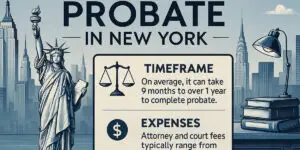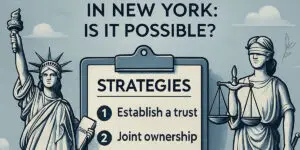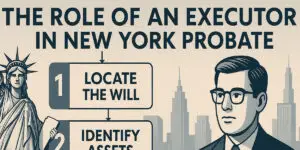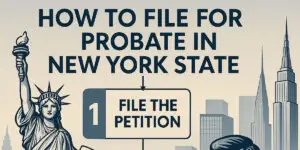Probate Litigation Attorney
When a singular person passes away, their assets should be passed on to the genuine recipients and beneficiaries. Probate is the lawful or court framework by which this happens when someone has no will, has a will, or has a trust anyway failed to finance all assets into that trust, leaving them subject to probate. Accepting that there is no will, state guideline coordinates how assets will be conveyed. On the off chance that there at any point was the last will showing the cravings of the decedent, it will facilitate what space assets will be procured by whom. The case is extremely challenging, reliant upon express rules, deadlines, etc. A probate attorney helps individuals, principal recipients, beneficiaries, specialists, and lawful directors investigate the case connection to obtain the best result.
These attorneys insinuate the legal methods related to testing a will, scrutinizing a trust, searching for surveys for a break of watchman commitment, quieting title to a property, getting a property that was inappropriately taken, keeping an eye on the deficiency or pointless effect issues, or dealing with a tortious impedance with expected inheritance ensure. A probate case is the legitimate or court process by which individuals hope to address an evident misguided or another bearing from the court concerning a companion or relative’s will or trust.
Why Get A Probate Litigation Attorney?
The short reaction is that you should guide a probate case legal advisor any time you question what a companion or relative is doing or has wrapped up with their home. Then again, if you are a specialist or legitimate chairman when requests are being presented to about how you are controlling a will or trust. A probate case legal counselor is regularly called upon to decide ordinary will, trust, and space questions, including:
Testing a Will, especially with more seasoned or weakened loved ones, changes wi,ll, trust or space plan under questionable circumstances. Occasionally, a will, trust, or home plan could contain mistakes or rejections that ought to be tended to. In any of these cases, a will or trust ought to be genuinely tested or addressed in court, or court heading will be supposed to decide the blunder or prohibition.
Unreasonable Influence suggests a situation wherein a person in a key, strategic position of power takes advantage of someone else. It is potentially the most broadly perceived legitimization behind testing a will. Habitually, an inordinate effect assurance will relate to a case that the decedent didn’t have sufficient scholarly capacity, and as a result, that insufficiency was feeble to baseless effect. Expecting something like one principal replacement or beneficiary acknowledges that someone crushed the decedent’s desires for their benefit, the primary replacement or beneficiary could challenge the authenticity of the report or allocation and hope to have the assets of the home passed according to what the court insists on to be the decedent’s genuine wishes.
A specialist is a legal administrator, regularly, a particular family member chooses to fulfill the essentials of a will. A legitimate head is a gatekeeper selected to fulfill the necessities of a trust. Suppose for no obvious reason. They don’t follow the decedent’s rules or their responsibilities under the law. In that case, a probate suit is a gadget to search for suspension or clearing of the watchman, the game plan of a reliable legal administrator chosen, and recovery of damages from the legal administrator for their legal administrator break.
FAQ
1. What is non probate property?
Non probate property is a property that hasn’t gone through probate due to having a trust because the trust has the power to do so. The property is already transferred to those you list as a beneficiary, so you don’t have to worry about extra expenses.
2. Power of attorney lawyers expensive?
A power of attorney can depend on the price but can go from $250 to $350 per hour, but with Morgan Legal Group P.C., we charge $300 for this protection service.
3. How to find a will in New York state and why get one?
You can apply for a Will with an estate plan lawyer, or you can start by creating a rough draft yourself, but make sure you have a lawyer look for eligibility and approval toward the probate court. You should apply or make a Will with an estate plan lawyer to get the best guidance, go through the probate process without delays, and feel prepared for an expense-free situation.
4. Estate Administration Lawyer takes care of what?
Estate Administration Lawyer has multiple responsibilities when taking care of or managing your estate plan. An estate administration lawyer puts value to your assets, including your home, help you contact your beneficiaries if you can’t get a hold of them, calculates any taxes, help with debts, and any distribution you may need.
5. What happens if you die interstate?
If you pass interstate without a plan, you’re leaving the paperwork to your entire family. They would have to gather all the assets, including your business and home, to manage it and decide who the new owners would be. They would have to file a guardianship claim for this person’s children, which is more expenses added and funeral expenses as well. Afterward, the organization of the rest of the assets and who the owners of these monetary assets would be. Without an estate plan, you’re leaving so much responsibility to your loved ones and the possibilities of losing money rather than battling for it.
6. Collecting social security on deceased spouse and how can this be achieved?
If you’re married, you can share your inheritance, no matter what it is, with your spouse, but with an estate plan, you can guide your assets to whoever you wish since it’s your assets. An estate plan can not only give you legal ownership of everything, but you can transfer it to those who need it.
7. Will going to probate occurs when?
The probate process occurs as soon as possible or whenever you’re ready to submit the document to go through this process.
8. Name of trust is located where within the document?
The creator of the trust, the trustee, and whoever has assisted are named in the declaration of beliefs with the date included for proof of it.




